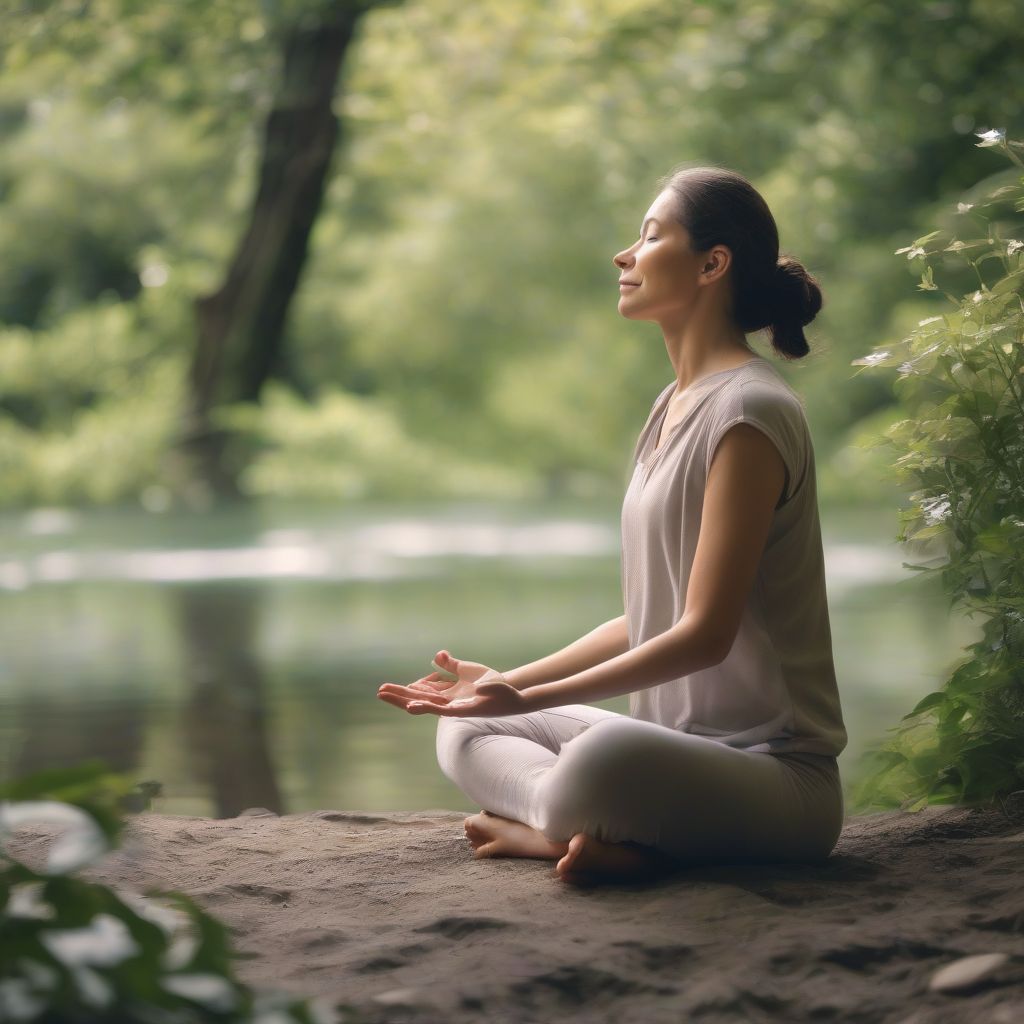Ever feel like your mind is a whirlwind of thoughts, constantly buzzing with to-dos, worries, and anxieties? You crave a moment of peace, a way to hit the “pause” button on the constant chatter. You’re not alone. That’s where the incredible power of meditation comes in.
Now, before you picture yourself contorting into impossible yoga poses or chanting in a remote mountaintop monastery, let me assure you: meditation is for everyone. And it’s much simpler than you might think.
This beginner’s guide will walk you through the basics, providing a clear roadmap to starting and maintaining a fulfilling meditation practice. Let’s embark on this journey to inner peace together!
Why Meditate? Unveiling the Benefits
Meditation isn’t just an ancient practice shrouded in mysticism. Science backs up its incredible benefits for both your mental and physical well-being. Here are just a few ways meditation can transform your life:
- Reduces Stress and Anxiety: Studies show that meditation can physically alter the brain’s neural pathways, reducing activity in the amygdala, the area responsible for fear and stress responses.
- Improves Focus and Concentration: Regular meditation strengthens your attention span and helps you stay present, even amidst distractions. This enhanced focus can boost your productivity and cognitive abilities.
- Promotes Emotional Health: Meditation empowers you to observe your emotions without judgment, increasing self-awareness and helping you manage difficult feelings more effectively.
- Enhances Sleep Quality: By calming a racing mind, meditation sets the stage for a restful night’s sleep.
- Boosts Compassion and Kindness: Research suggests that meditation can increase activity in areas of the brain associated with empathy and compassion, making you more understanding and kinder to yourself and others.
 Woman Meditating Peacefully
Woman Meditating Peacefully
Getting Started: Simple Steps for Beginner Meditators
Ready to experience the transformative power of meditation? Follow these easy steps:
1. Create a Calm and Inviting Space
Find a quiet corner in your home where you can meditate without distractions. It doesn’t need to be a dedicated meditation room; a cozy nook or a comfortable spot in your bedroom will do. You can enhance the ambiance with calming elements like:
- Soft Lighting: Dim the lights or use candles to create a relaxing atmosphere.
- Aromatherapy: Use essential oils like lavender or chamomile, known for their calming properties.
- Comfortable Seating: Choose a cushion, chair, or even a folded blanket that allows you to sit comfortably with a straight spine.
2. Choose Your Meditation Style
There are numerous types of meditation, each with its unique approach. As a beginner, explore these popular options:
- Mindfulness Meditation: Focus on your breath, noticing thoughts and sensations without judgment, gently guiding your attention back to the present moment when your mind wanders.
- Guided Meditation: Listen to guided meditations through apps or online resources. A soothing voice guides you through visualizations or specific themes like stress reduction or sleep.
- Walking Meditation: Engage in mindful walking, paying attention to the sensations of your feet on the ground, the rhythm of your breath, and the sights and sounds around you.
3. Start Small and Be Patient
Begin with short meditation sessions of 5-10 minutes and gradually increase the duration as you feel comfortable. Consistency is key, so aim to meditate daily, even if it’s just for a few minutes. Remember, meditation is a practice, not a performance. Be patient with yourself and don’t get discouraged if your mind wanders. It’s perfectly normal.
4. Focus on Your Breath
Your breath serves as a powerful anchor to the present moment. Focus on the natural rhythm of your inhales and exhales. Notice the rise and fall of your chest or the sensation of air entering and leaving your nostrils.
5. Embrace a Non-Judgmental Attitude
Your mind will wander during meditation—it’s inevitable. The key is to observe these thoughts without judgment, gently guiding your attention back to your breath or chosen point of focus. Treat each thought like a passing cloud, acknowledging it without getting carried away by it.
6. Make it a Habit
Consistency is key to reaping the benefits of meditation. Integrate it into your daily routine just like brushing your teeth or having your morning coffee. Experiment with different times of day to find what works best for you.
[amazon bestseller=”meditation cushion”]
Overcoming Common Challenges
Starting a new practice can come with its own set of hurdles. Here are some common challenges beginners face and how to overcome them:
- “I can’t clear my mind.”: It’s a misconception that meditation is about emptying your mind. Embrace the thoughts, acknowledge them without judgment, and gently redirect your focus to your breath.
- “I don’t have time.”: Even 5 minutes of meditation can be beneficial. Start small and gradually incorporate longer sessions into your schedule as you feel comfortable.
- “I’m too restless.”: If you find it challenging to sit still, explore walking meditation or other forms of mindful movement.
Conclusion: Embrace the Journey to Inner Peace
Starting a meditation practice is a gift you give yourself—a pathway to greater peace, focus, and well-being. It’s a journey of self-discovery, patience, and kindness. Remember, consistency is key, and like any new skill, it takes time and practice to master. Embrace the process, be kind to yourself, and celebrate the small victories along the way.
Ready to take the next step on your meditation journey? Share your experiences or ask any questions you have in the comments below. Let’s support each other on this path to inner peace.
